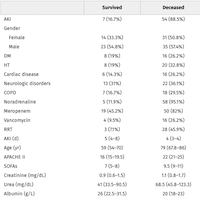Fluid Resuscitation: Evidence-based Solutions?
evidentlycochrane.net
Intravenous (IV) fluid prescribing is one of the commonest tasks carried out by junior doctors. I still remember around this time last year when I was fresh out of medical school and had just been let loose on the wards, I was asked by a nurse to prescribe a bag of maintenance fluids for a young surgical patient with no significant comorbidities.
Being the clueless junior doctor that I was, I replied that I needed to examine the patient first and would get back to her, to which in return I saw the nurse’s expression change from one of bewilderment to that of amusement, as she walked away with a chuckle.
While I don’t necessarily examine all my patients before prescribing routine fluids now (nurses are your trusted friend), it is still a good idea to at least have a think about the patient’s fluid balance, especially in those who are at risk of fluid overload.
To put things into perspective, the 1999 National Confidential Enquiry into Perioperative Deaths (NCEPOD) found that 1 in 5 patients suffered complications relating to inadequate IV fluid prescribing; a further report in 2011 showed that poor fluid management is associated with a significantly higher 30-day mortality.
















